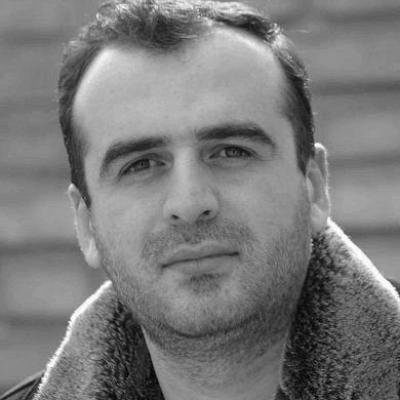
Last Update
June 17, 2020
Organisation
Unknown
Gender
Male
Ethnic Group
Azerbaijani
Religoius Group
Muslim
Province
Zanjan
Occupation
Journalist
Sentence
8 years imprisonment
Status
Released
Institution investigating
Ministry of Intelligence
Charges
Propaganda against the regime
Saeed Matinpour Released
"He was interrogated for nine months and was severely beaten, so much so that he cannot talk about it and even the memory of those days is painful for him."
Saeed Matinpour, 39, was first arrested while handing out sweets at a rally in Azerbaijan that recognized Azeri as an official language. He was detained at the Intelligence Bureau of Zanjan for 20 days and then released on bail.
According to the website of the International Campaign for Human Rights in Iran, Matinpour “has a master’s degree in philosophy from Tehran University…In his writings he protested against human rights violations and advocated peaceful activities in the pursuit of Azerbaijani cultural and linguistic rights such as the right to primary education and publication in the Azerbaijani language.”
Matinpour was arrested a second time on May 25th 2007, with his wife in the city of Zanjan. Intelligence Ministry agents detained them and searched their home without a warrant, confiscating books, notes, and a laptop. Altogether Matinpour spent 280 days in detention, both at the Intelligence Bureau’s detention center in Zanjan and in solitary at Evin Prison. He was repeatedly tortured, eventually forcing him to make a TV confession, and causing him to suffer from digestive problems, headaches and back pain. His brother was also arrested to put added pressure on him. Eventually he was released on a $550,000 bail on January 28th 2008, at which point he was severely underweight, ill and depressed. Only through donations and by making the deeds of three separate houses collateral were the family able to afford it.
He was tried by Branch 15 of the Revolutionary Court presided by Judge Salavati who sentenced him to seven years in prison for his affiliation to foreign entities and another year for propaganda against the regime. “He was charged with having connections with the Turkish government,” says his wife Atieh Taheri, “a charge that he has rejected. He was interrogated for nine months and was severely beaten, so much so that he cannot talk about it and even the memory of those days is painful for him. During the trial Judge Salavati ordered him to shut up and forbid him from defending himself against those trumped-up charges.”
The appeals court upheld the sentence and Matinpour was summoned to prison on July 11th 2009, one month after the disputed presidential elections of that year. He was sent to Cell Block 350, the communal ward of Evin Prison where despite his wife’s repeated requests, was denied a furlough. “In response to my letters, they only said that the IRGC [Revolutionary Guard] does not approve of Saeed leaving, but they never gave a reason for this,” she told the International Campaign for Human Rights in Iran. “A few weeks ago, when I went to the Prosecutor’s Office to submit a furlough request, the Assistant Judge told me that for as long as my husband does not write a pardon request, there would be no furlough. But Saeed does not want to write one at all. He says, ‘I did not do anything that was against the laws of the Islamic Republic of Iran and I was never found guilty in any court of law, so I can’t request a pardon for it’.”
On April 17th 2014, 31 political prisoners, Matinpour included, were brutally beaten and put in solitary confinement at Evin’s Cell Block 240 where he protested by going on hunger strike. As a show of her support, his wife Atieh Taheri, also a human rights activist, went on a hunger strike as well.
Matinpour was finally granted a 3-day leave of absence on July 26th, 2014.
After 7 years in prison, Matinpour was released from Evin Prison on Wednesday August 26th 2015, due to the implementation of Article 134 of Iran’s new Islamic Penal Code, which requires convicts with multiple charges to be released after having served their longest sentence.